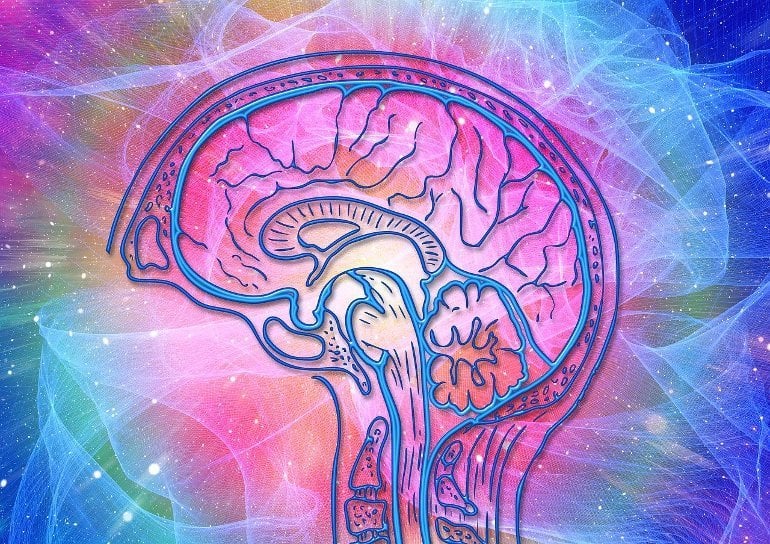Summary: Using neuroimaging data, a new deep-learning algorithm was able to detect Alzheimer’s disease with 90.2% accuracy.
Source: Mass General
Although investigators have made strides in detecting signs of Alzheimer’s disease using high-quality brain imaging tests collected as part of research studies, a team at Massachusetts General Hospital (MGH) recently developed an accurate method for detection that relies on routinely collected clinical brain images. The advance could lead to more accurate diagnoses.
For the study, which is published in PLOS ONE, Matthew Leming, PhD, a research fellow at MGH’s Center for Systems Biology and an investigator at the Massachusetts Alzheimer’s Disease Research Center, and his colleagues used deep learning—a type of machine learning and artificial intelligence that uses large amounts of data and complex algorithms to train models.
In this case, the scientists developed a model for Alzheimer’s disease detection based on data from brain magnetic resonance images (MRIs) collected from patients with and without Alzheimer’s disease who were seen at MGH before 2019.
Next, the group tested the model across five datasets—MGH post-2019, Brigham and Women’s Hospital pre- and post-2019, and outside systems pre- and post-2019—to see if it could accurately detect Alzheimer’s disease based on real-world clinical data, regardless of hospital and time.
Overall, the research involved 11,103 images from 2,348 patients at risk for Alzheimer’s disease and 26,892 images from 8,456 patients without Alzheimer’s disease. Across all five datasets, the model detected Alzheimer’s disease risk with 90.2% accuracy.
Among the main innovations of the work were its ability to detect Alzheimer’s disease regardless of other variables, such as age. “Alzheimer’s disease typically occurs in older adults, and so deep learning models often have difficulty in detecting the rarer early-onset cases,” says Leming.

“We addressed this by making the deep learning model ‘blind’ to features of the brain that it finds to be overly associated with the patient’s listed age.”
Leming notes that another common challenge in disease detection, especially in real-world settings, is dealing with data that are very different from the training set. For instance, a deep learning model trained on MRIs from a scanner manufactured by General Electric may fail to recognize MRIs collected on a scanner manufactured by Siemens.
The model used an uncertainty metric to determine whether patient data were too different from what it had been trained on for it to be able to make a successful prediction.
“This is one of the only studies that used routinely collected brain MRIs to attempt to detect dementia. While a large number of deep learning studies for Alzheimer’s detection from brain MRIs have been conducted, this study made substantial steps towards actually performing this in real-world clinical settings as opposed to perfect laboratory settings,” said Leming.
“Our results—with cross-site, cross-time, and cross-population generalizability—make a strong case for clinical use of this diagnostic technology.”
Additional co-authors include Sudeshna Das, PhD and, Hyungsoon Im, PhD.
Funding: This work was supported by the National Institutes of Health and by the Technology Innovation Program funded by the Ministry of Trade, Industry and Energy, Republic of Korea, managed through a subcontract to MGH.
About this artificial intelligence and Alzheimer’s disease research news
Author: Bradon Chase
Source: Mass General
Contact: Bradon Chase – Mass General
Image: The image is in the public domain
Original Research: Open access.
“Adversarial confound regression and uncertainty measurements to classify heterogeneous clinical MRI in Mass General Brigham” by Matthew Leming et al. PLOS ONE
Abstract
Adversarial confound regression and uncertainty measurements to classify heterogeneous clinical MRI in Mass General Brigham
In this work, we introduce a novel deep learning architecture, MUCRAN (Multi-Confound Regression Adversarial Network), to train a deep learning model on clinical brain MRI while regressing demographic and technical confounding factors.
We trained MUCRAN using 17,076 clinical T1 Axial brain MRIs collected from Massachusetts General Hospital before 2019 and demonstrated that MUCRAN could successfully regress major confounding factors in the vast clinical dataset. We also applied a method for quantifying uncertainty across an ensemble of these models to automatically exclude out-of-distribution data in AD detection.
By combining MUCRAN and the uncertainty quantification method, we showed consistent and significant increases in the AD detection accuracy for newly collected MGH data (post-2019; 84.6% with MUCRAN vs. 72.5% without MUCRAN) and for data from other hospitals (90.3% from Brigham and Women’s Hospital and 81.0% from other hospitals).
MUCRAN offers a generalizable approach for deep-learning-based disease detection in heterogenous clinical data.







